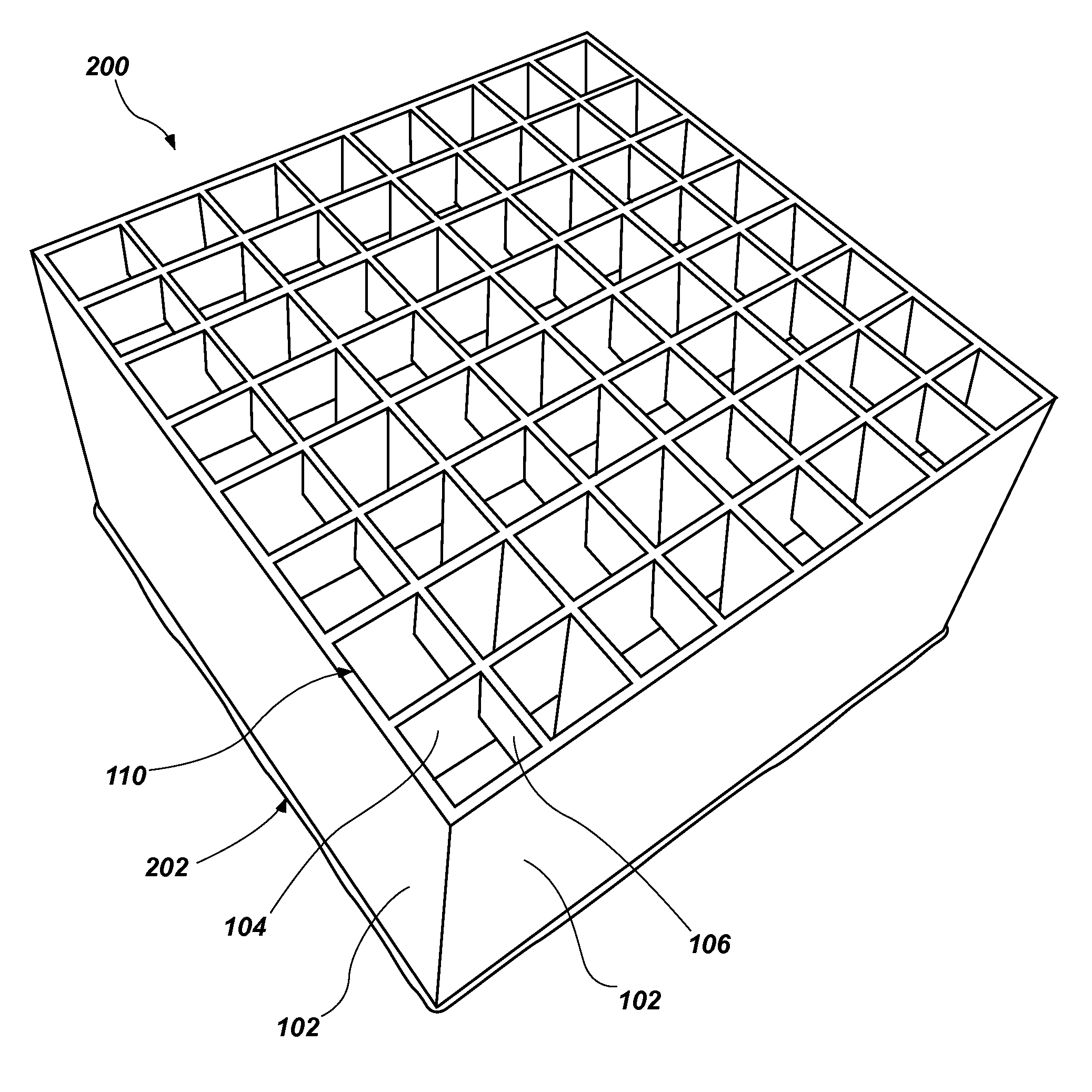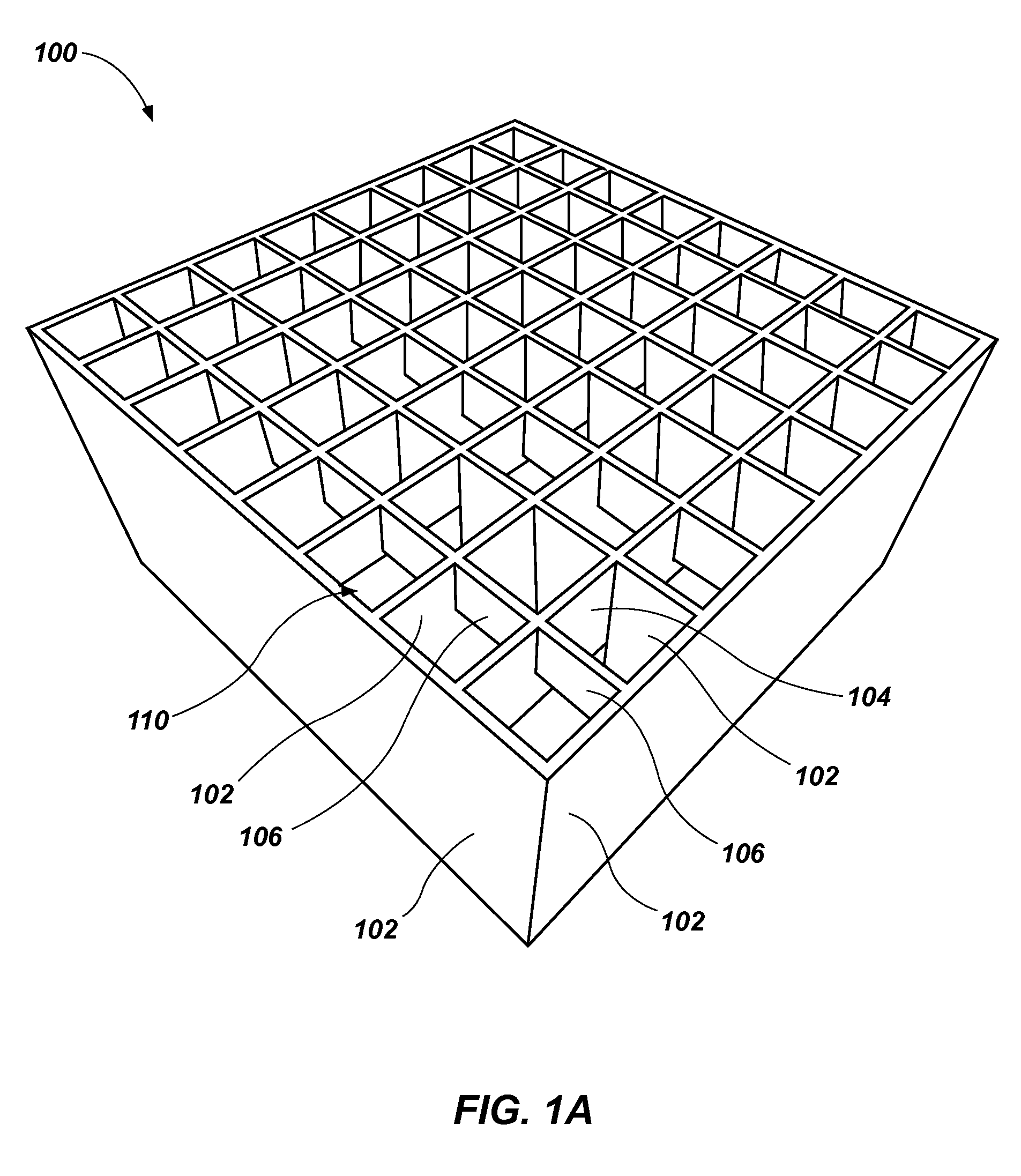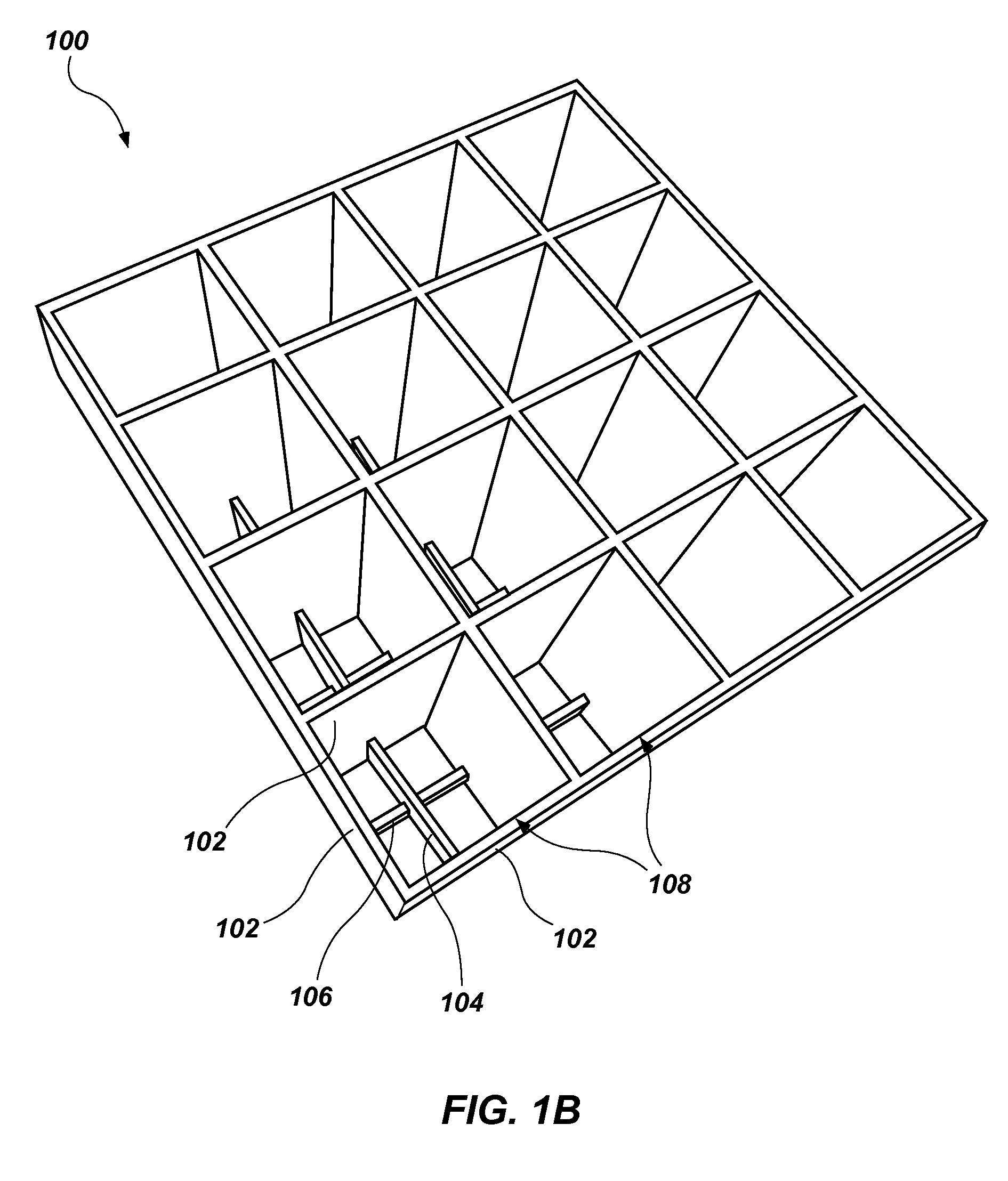Cushioning elements comprising buckling walls and methods of forming such cushioning elements
a cushioning element and buckling wall technology, applied in the field of cushioning elements, can solve the problem of reducing the chance of the first wall
- Summary
- Abstract
- Description
- Claims
- Application Information
AI Technical Summary
Benefits of technology
Problems solved by technology
Method used
Image
Examples
examples
[0063]An elastomeric gel is prepared by mixing one part by weight of a styrene-ethylene-ethylene-propylene-styrene (SEEPS) elastomeric triblock copolymer (e.g., SEPTON® 4055, available from Kuraray America, Inc.) with two parts by weight of a 70-weight straight-cut white paraffinic mineral oil (e.g., CARNATION® white mineral oil, available from Sonneborn, Inc.) and traces of pigment and antioxidant (e.g., IRGANOX® 1010 and / or IRGAFOS® 168, from BASF Corp.). Microspheres may be added to improve processability, to reduce weight, or to increase gel stiffness.
[0064]Molten elastomeric gel is injected into a mold (e.g., a mold 300, as shown in FIG. 3A) by the processes described in U.S. Pat. No. 7,666,341, issued Feb. 23, 2010, and entitled “Screed Mold Method,” which is incorporated herein in its entirety by this reference. The top of the mold may correspond to the top of the cushioning element to be formed (e.g., the top of cushioning element 100 in the orientation shown in FIG. 1A). Bu...
PUM
| Property | Measurement | Unit |
|---|---|---|
| Weight | aaaaa | aaaaa |
| Elastomeric | aaaaa | aaaaa |
| Height | aaaaa | aaaaa |
Abstract
Description
Claims
Application Information
 Login to View More
Login to View More - R&D
- Intellectual Property
- Life Sciences
- Materials
- Tech Scout
- Unparalleled Data Quality
- Higher Quality Content
- 60% Fewer Hallucinations
Browse by: Latest US Patents, China's latest patents, Technical Efficacy Thesaurus, Application Domain, Technology Topic, Popular Technical Reports.
© 2025 PatSnap. All rights reserved.Legal|Privacy policy|Modern Slavery Act Transparency Statement|Sitemap|About US| Contact US: help@patsnap.com



